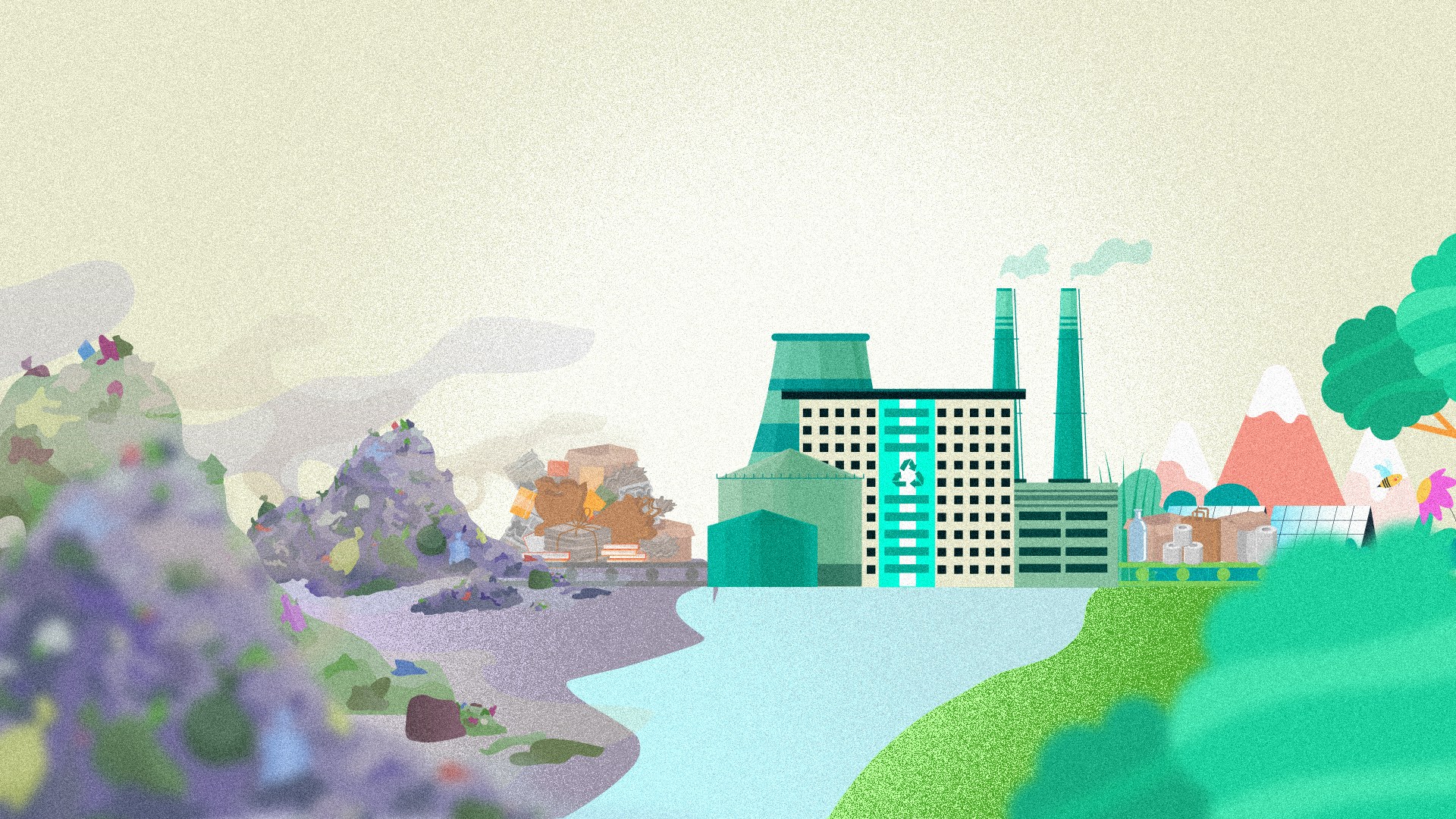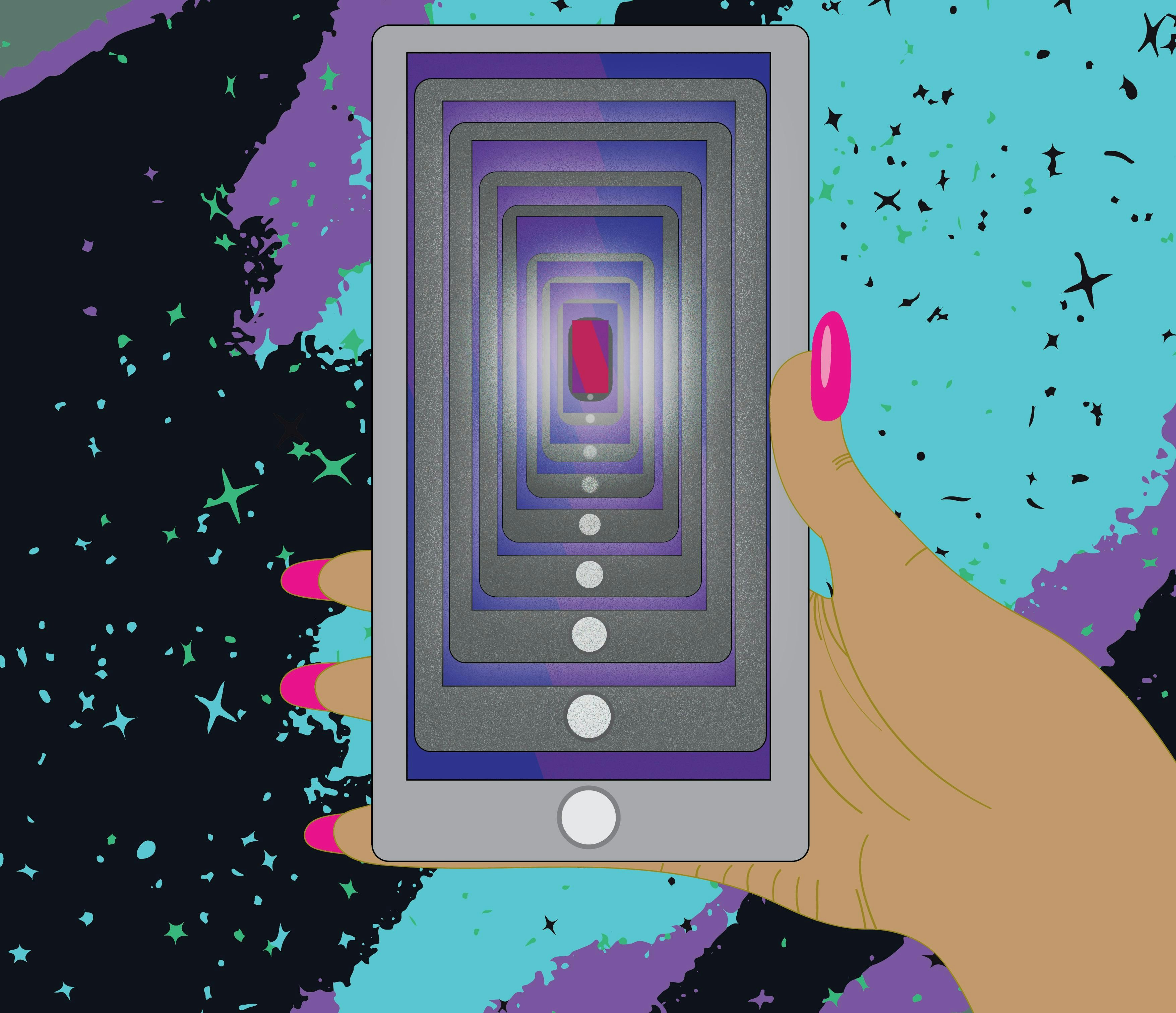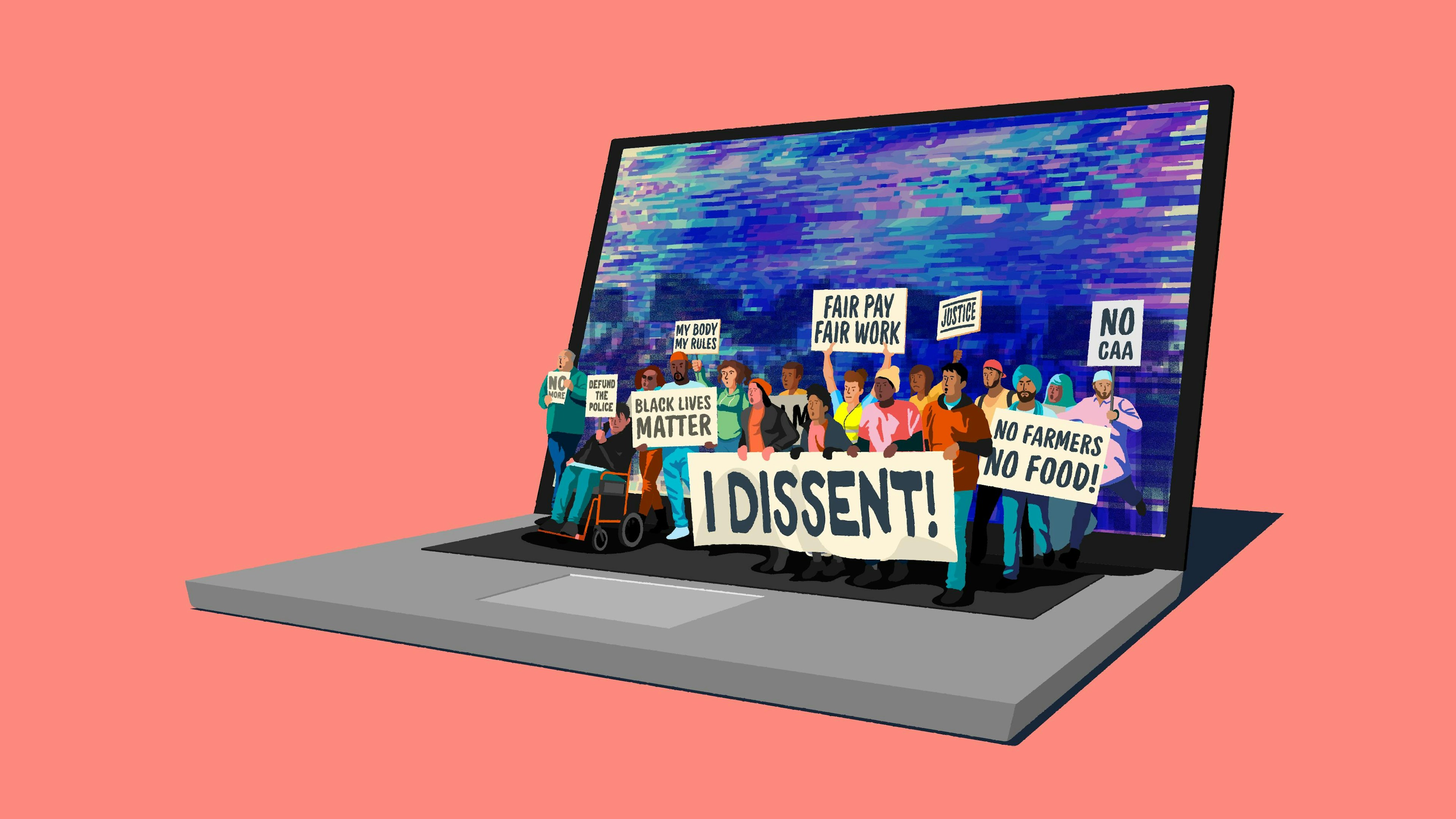Meet Nathalie Béchet, Digital Anthropology Researcher
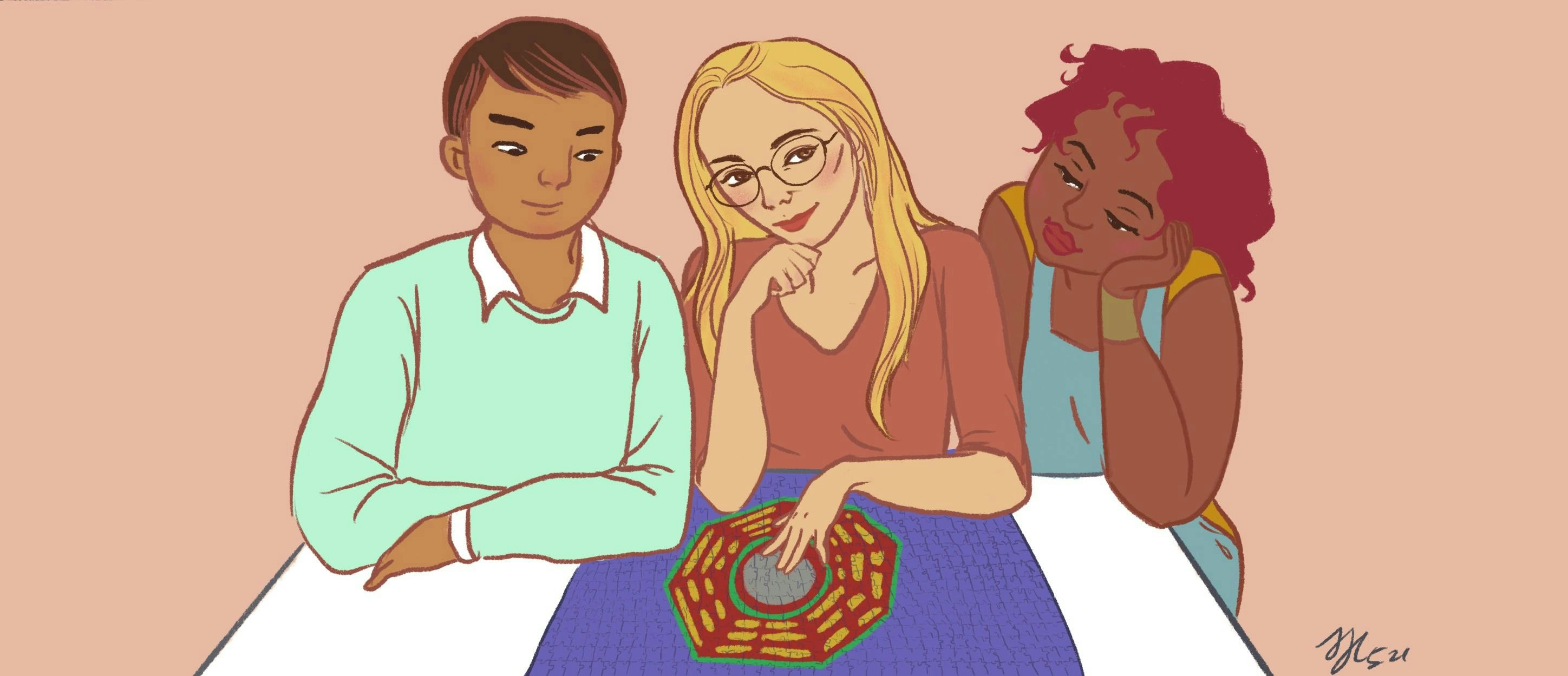
In this QA, L'Atelier digi-anth researcher Nathalie Béchet describes what she considers digital anthropology, why it matters, what purpose it serves in companies and for communities … and what most excites her about the future.
Who are you, how did you get here, and what cultivated your interest in digital anthropology?
I’m a French digital anthropology researcher at L’Atelier. During my masters, while doing ethnographic fieldwork in Taiwan on how business people use feng shui, I discovered that religion and technology are not antagonists, and can even work together: Feng shui Daoist masters used the internet to promote their consultancies, and offered feng shui analyses of people and companies’ websites.
At the time I had a classmate working on humans’ relationship to robots, and another studying hacker networks. I was fascinated. That’s when I realised that what I wanted to do was not anthropology but digital anthropology. My masters director didn’t agree … so I shifted my thesis topic anyway, got a bad grade, and moved on to another masters in data science and digital anthropology.
What is digital anthropology, and how is it different from basic anthropology?
Claude Levi-Strauss once wrote, “As long as the ways of being, or of doing, of some Men will pose problems to other Men, there will be room for reflection on these differences, which, in an ever renewed form, will remain the task of Anthropology.”
Anthropology is a scientific discipline that studies societies’ cultural specificities, and differences and similarities across regions. But it is divided into many sub-fields: the anthropology of religion, health, economics, kinship... Digital anthropology is one. It studies the impacts of digitalisation on the world, looks at how individuals assimilate and repurpose technology, produces online ethnographic fieldwork, and adapts methods from the computational sciences, such as data collection or sentiment analysis.
Why do we need anthropology, let alone the digital kind?
Anthropology is the only discipline founded on the fine comprehension of otherness. It is about deconstructing everything you’ve learned as an individual, plucking out your biases of local education and culture, and using these new eyes to understand others with clear sight.
Anthropologists are the best mediators between worlds: they study how communities and societies are structured, their habits and codes, what matters to them, who is considered an insider or outsider, and why they do what they do. We need anthropology to put an end to the hierarchisation of cultures. We need anthropology to advise governments on healthy policy-making and application. We need anthropology to inject ethics and humanity into corporations. We need anthropology so some Men can understand that other Men do differently than they do, and that is okay.
What other science is about managing alterity?
Why does L’Atelier need digital anthropologists?
L’Atelier is a foresight company that seeks market opportunities at the intersection of emerging trends and technologies. They need digital anthropologists to lead online ethnographies around communities, studying their spaces (social networks, platforms, etc.), language (memes, emojis, hashtags), icons (influencers, celebrities), shared interests (hobbies, affinities), and emotions toward specific events or concepts (sentiment analysis).
L’Atelier also needs us to evaluate people’s relationship to certain technologies, how they can be repurposed, and how technophobia and techno-utopianism evolve over time, across regions and communities.
What can other companies do with your knowledge?
Anthropologists can be considered “bias-protection machines,” either for cultural biases or other types, because we are trained to think against our reflexes and question every decision at each step of a process. That might sound draining for a company, but these healthy habits actually save them from costly mistakes.
Generally speaking, companies can use digital anthropologists to operate as mediators between themselves and specific groups to adopt the right language and grasp their issues. Then we can help companies position themselves accordingly and, above all, ethically.
Unfortunately, companies can also use anthropologists’ expertise to manipulate people, culturally appropriate, profit from communities, and sell more products.
How does digital anthropology impact culture or civic planning?
I don’t think anthropology can impact culture (culture impacts things). But anthropologists and digital anthropologists have a role to play in civic planning. For instance, they can be impartial judges for helping governments measure the level of danger of an online community (ex: QAnon, incels, MAPs). Digital anthropologists also practice sentiment analysis and opinion collection, and can assess how a policy, event, campaign or law is received by different segments of a population (ex: how are people reacting to the Covid vaccination campaign?).
Finally, computational-savvy anthropologists can evaluate how ethical an algorithm is. When it comes to using AI for issuing taxes or deciding prison sentences, it is not difficult to understand how much is at stake for experts, communities and governments.
Who or what inspires you in your work?
I am inspired by digital anthropologists who help government structures better understand their audience, and how to deal with them. People like Laëtitia Atlani-Duault led research and advised the French government in the first months of the Covid epidemic. She is the president of the Covid-19 Ad Memoriam Institute and director of the WHO Collaborative Center for Research on Health and Humanitarian Policies and Practices. I am also inspired by Bilel Benbouzid, who worked with the French government’s information service (SIG) on the deployment of the Yellow Jacket (Gilets Jaunes) movement on Youtube. He also worked with the police on the flaws and uses of predictive policing.
My life motto is Marie Curie’s famous quote: “Nothing in life is to be feared, it is only to be understood.” The more I do anthropology, the more I understand the diversity of humankind, and the more I feel at peace.
What’s one thing people don’t know that you wish they did?
I wish people wouldn’t mix anthropology with philosophy or archaeology, and say things like, “So you work with bones and dead people?” Actually, among other things, I work on how the living handle their dead. I also wish people knew how scientifically rigorous anthropology is. We handle qualitative and quantitative data, create protocols, rely on verified sources, and elaborate theses under the scrutiny of scientific commissions.
Also, did you know that the more you study human diversity, the more you find very different types of people attractive? More people should know this!
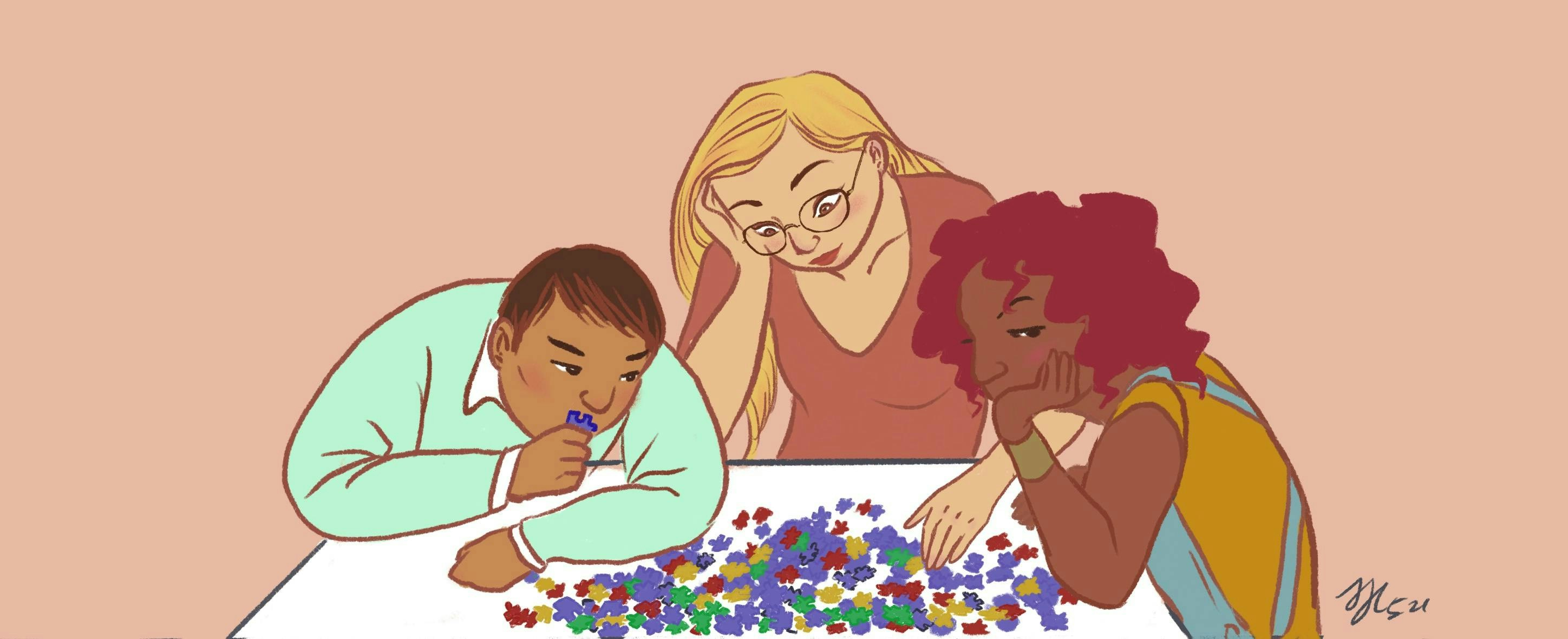
Nathalie: Very much a puzzle person.
What kind of future do you hope to help design?
You know what I actually dream of achieving before I die? Imposing anthropology as a standard class in middle school and/or high school. It is so important that kids are exposed to the fact that their families, schools and states teach them one way, but in other regions, it might be taught another way. I genuinely believe that if kids were taught, early on, to consider different ways of life and cultural practices without bias, the world would be a different place.
At L’Atelier, I think I am part of a virtuous circle where companies are evolving towards more humane and ethical policies for both their workers and their activities, and I couldn’t be more proud. We need to keep up this momentum.
Tell a story involving digital anthropology that really impacted you.
A few years ago I was working on a collective project for the University of Amsterdam. Our subject consisted of observing how, on Reddit, diverse political names are discussed within politically opposed subreddits or groups. For example: how the name "Bernie Sanders" was discussed in the subreddits r/communism and r/conservatism.
After extracting adjectives surrounding the name in each subreddit, we proceeded to a contrast map that demonstrated how polarised they were on an axis. Some subreddits, no matter the political figure, were always more biased, insulting or extreme, while others remained very analytical.
After those findings, I remember thinking how powerful this was. I thought, “If anything ever needed to be demonstrated to a judge in a trial, this could be used as rock-solid proof; these are facts.” I realised that data science, applied to social networks, is a genuine power.
What project are you proudest of so far?
For now, there is not a specific project that stands out for me. Having had the guts to leave traditional anthropology to train as a computational scientist, then getting employed in a private company, is so far the achievement I am most proud of.
Anthropologists working for corporations is still rare, especially when it comes to analysing the impacts of technology. Though I wouldn't go as far as saying Anthony and I are pioneers in this field, I am proud to think that we might be amongst the first social scientists to contribute to such a movement.
Whose work makes you really jealous?
Sal Hagen’s work, around the repurposing of pop culture figures (like Taylor Swift) as representatives of white supremacist movements on 4Chan and 8chan, is the type of doctorate I wish I did. I also regret not coming up with Jia Tolentino’s “The Age of Instagram Face: How social media, FaceTune, and plastic surgery created a single, cyborgian look.” This is the type of subject I am fascinated with and want to write more about.
Those topics are usually covered by journalists, but it is time for digital anthropologists to seize them and hopefully bring something new.
What do you hope to work on in the year to come?
I would love to create a guide for healthy practices on the internet. We have been given amazing technology with no manual, and this is a lack I’d feel proud to help fill. And I’d like to contribute to raising awareness about the dangers—and wonders—that the internet and technology avail.
It has become extremely easy to fall down the dystopian rabbit hole when considering our future (endangered privacy, online radicalisation, the banalisation of eugenics, pervasive surveillance, the automation of jobs), but in many ways, technology and the internet act as allies (world encyclopaedias for free 24/7, the birth of new jobs, environmentally-friendly tech solutions, etc).
Reducing those fears and this disenchantment, and cultivating informed hope, is among the greatest challenges we will face in the 21st century. I stand for this cause.
To learn more about digital anthropology, at L'Atelier or otherwise, check out Anthony Kelly's QA.
17 Jun 2021
-
Angela Natividad
Illustrations by Frankie Huang.
DATA-DRIVEN TECH & SOCIAL TRENDS. DISCOVERED WEEKLY. DELIVERED TO YOUR INBOX.
02/03
Related Insights
03/03
L’Atelier is a data intelligence company based in Paris.
We use advanced machine learning and generative AI to identify emerging technologies and analyse their impact on countries, companies, and capital.
